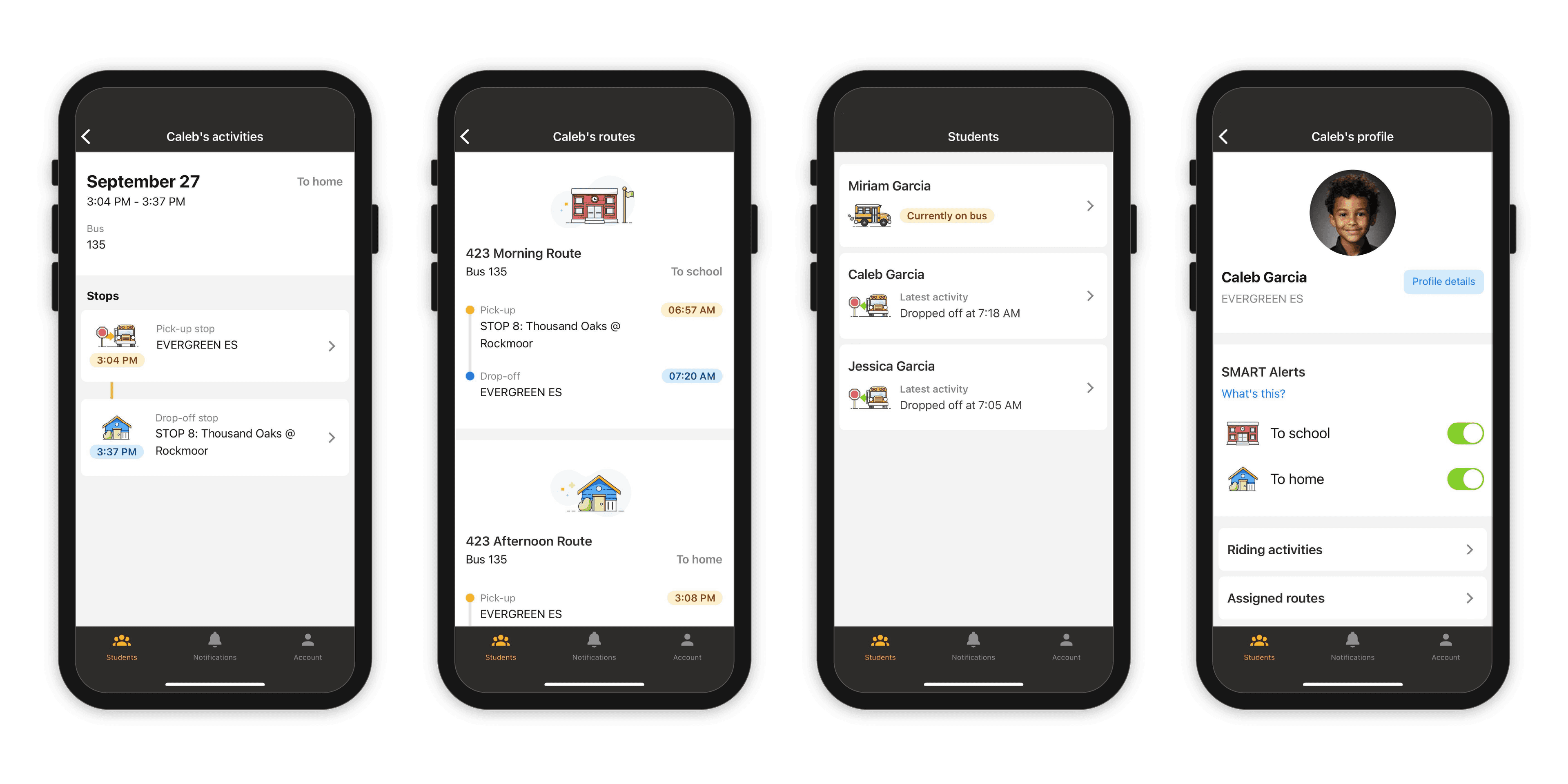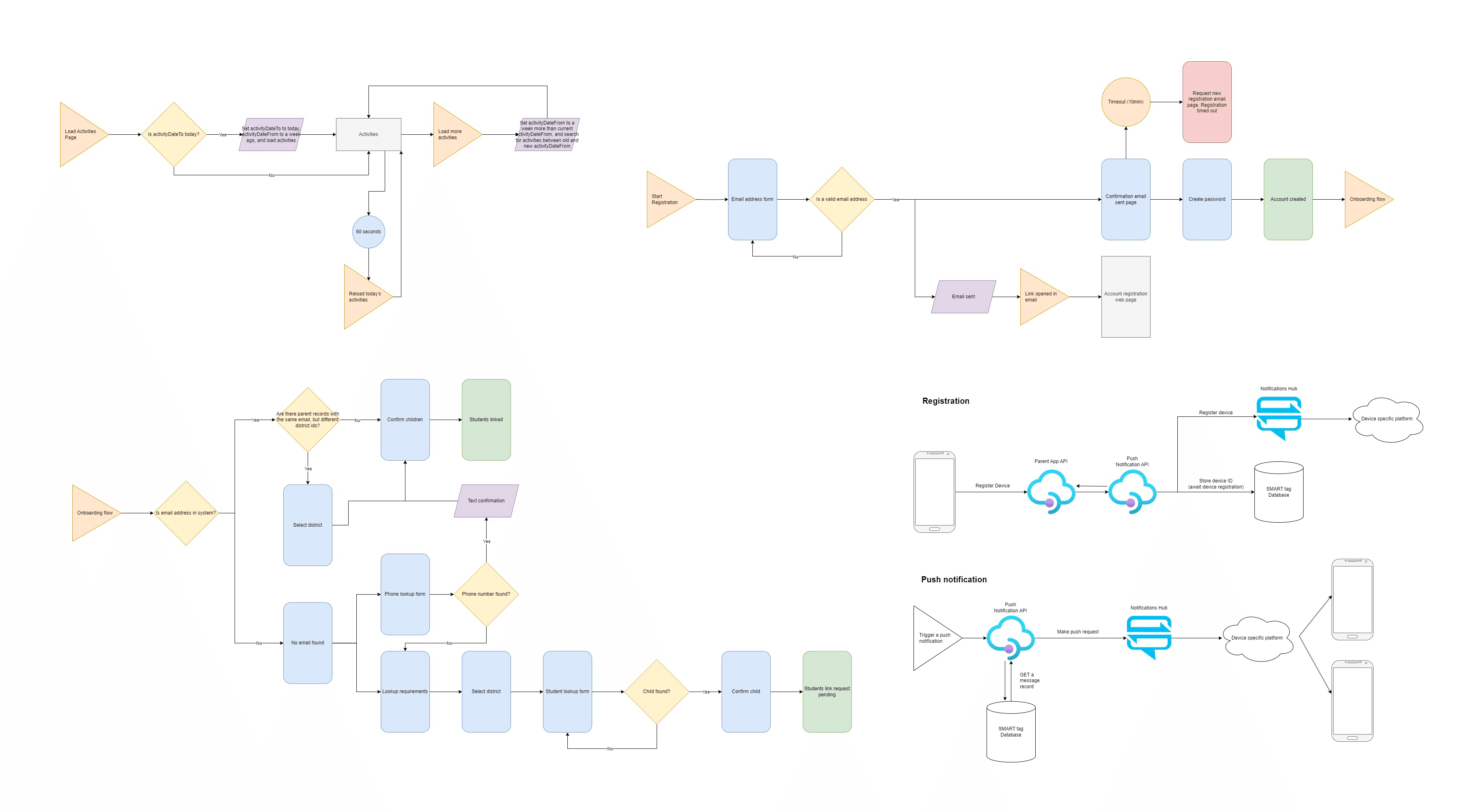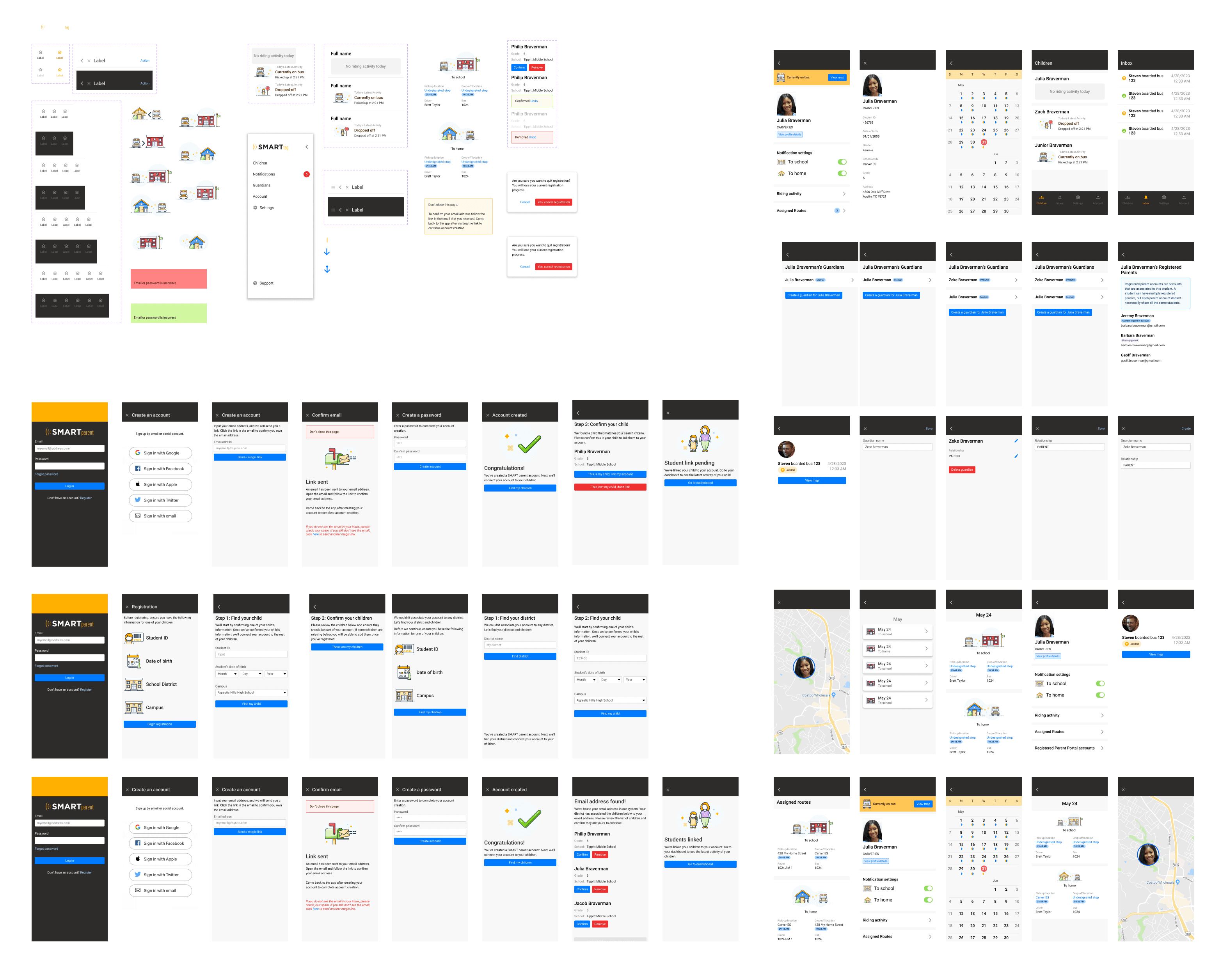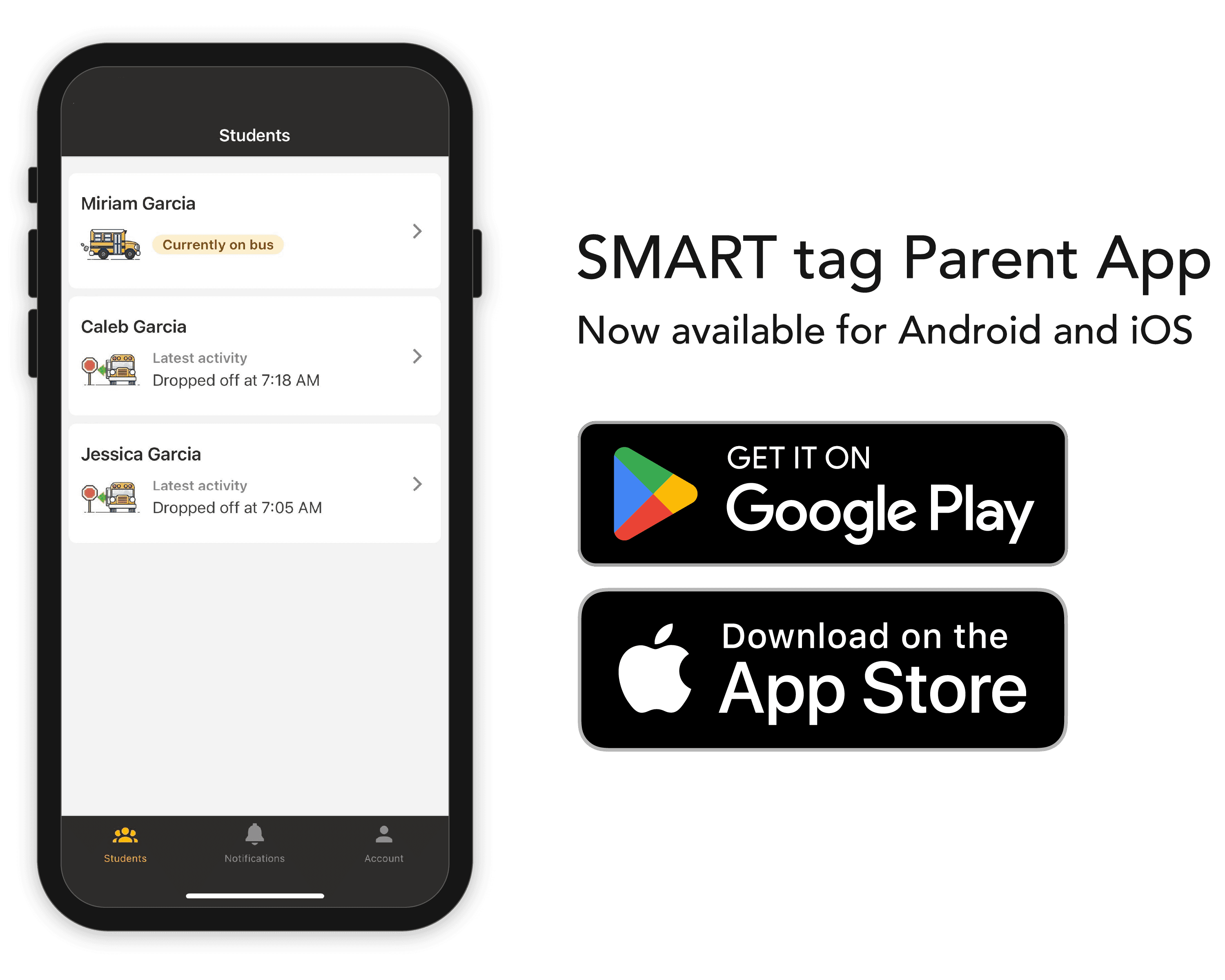SMART tag Parent App
UX/UI Design | Mobile App Development | User Research | Project Management | Stakeholder Engagement | App Store Deployment
Streamlining student transport safety: Designing and deploying a parent-centric app for real-time school bus tracking.

Project Overview
In a strategic move to enhance the user experience for parents, the SMART tag ecosystem evolved from a web-based parent portal to a native mobile application. This transition was driven by the goal to offer a more intuitive, accessible, and responsive interface. A key feature of this innovation was the integration of push notifications, a change that not only improved convenience for parents but also represented a cost-effective solution for our operations. The app was designed to provide real-time updates, ensuring parents stay informed about their child's school bus journey with greater ease and reliability. This project not only signifies a leap in technological advancement but also reflects our commitment to ensuring student safety and parent satisfaction through digital solutions.
Problem
In the early stages of the SMART tag Parent App project, our team recognized the limitations of the existing web-based parent portal. While functional, it lacked the immediacy and ease of access that modern parents expect in a digital solution. We conducted extensive research, including interviews and surveys with current users of the parent portal, to identify key areas for improvement. This process revealed a strong demand for on-the-go accessibility and real-time notifications, underscoring the need for a shift to a native mobile application. Our findings emphasized the importance of an intuitive user interface and the potential of push notifications to enhance the overall experience for parents, laying the groundwork for our design and development strategy.

Design & Development
Once the need for a native mobile experience was established, our design journey began with the creation of high-fidelity prototypes in Figma. These prototypes were pivotal in visualizing the intended user experience, focusing on a user-friendly interface that would make tracking student bus journeys effortless for parents. The development phase employed React Native, chosen for its ability to deliver a seamless cross-platform experience. Throughout this phase, we emphasized performance optimization and integration of push notifications, ensuring that the app was not just visually appealing but also highly functional and responsive. Regular testing and iterations allowed us to refine the app, paving the way for a product that truly resonated with the needs of our users.

Outcomes & Impact
As we begin the phased rollout of the SMART tag Parent App, initial feedback from our first district has been overwhelmingly positive. Parents have expressed appreciation for the enhanced user experience and the convenience of receiving real-time updates. While it's still early days to measure the full impact, this initial response is a promising indicator of the app's potential to significantly improve parent engagement and satisfaction. As we continue to introduce the app across more districts, we anticipate not only a reduction in operational costs but also a deeper trust and connection between the school transportation system and the parent community.
Reflection & Learnings
Reflecting on the journey of developing the SMART tag Parent App, the experience has been a profound exercise in understanding and meeting the evolving needs of modern parents. The challenge of transitioning from a web-based portal to a native mobile app taught me the importance of adaptability and user-centric design in the digital age. Engaging directly with parents for feedback was invaluable, reinforcing the principle that the best solutions are often born out of close collaboration with end-users. As we continue to roll out the app, I am eager to see its long-term impact and excited for the opportunities to learn and grow further from this endeavor.
